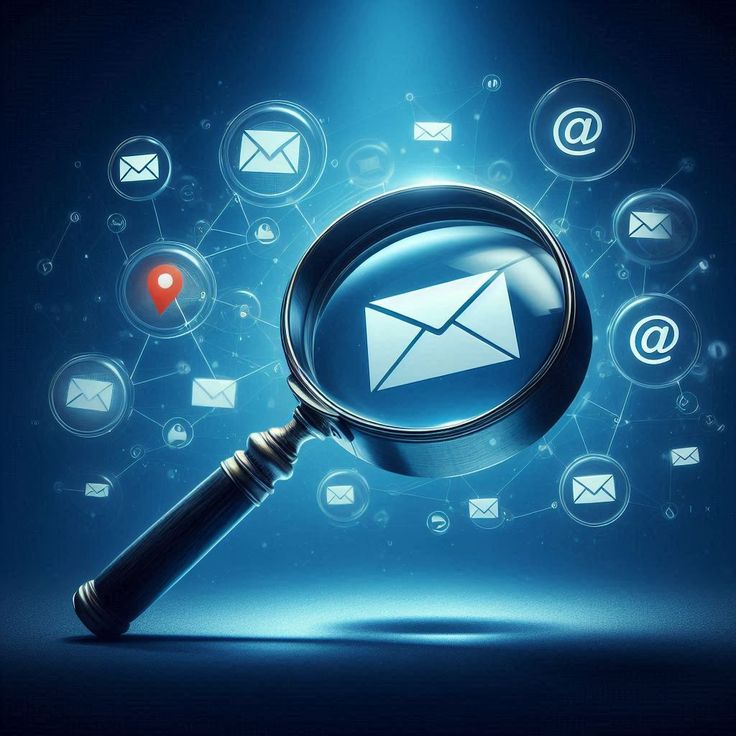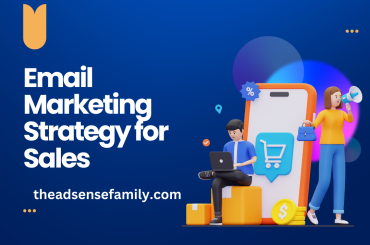In the ever-evolving world of digital marketing, harnessing the power of email scraping can elevate your affiliate funnels to new heights. As a savvy marketer, you understand that building an effective communication channel is crucial for driving conversions and nurturing relationships. However, navigating the complexities of email scraping requires both precision and adherence to ethical practices. This article delves into the strategic process of collecting emails efficiently and integrating them seamlessly into your affiliate funnels. By mastering these techniques, you will not only expand your reach but also enhance the effectiveness of your marketing efforts, ensuring robust and sustainable growth.
Overview: Email Scraping for Affiliate Funnels
Understanding Email Scraping
Email scraping is a potent technique for extracting email addresses from various online sources, pivotal in the realm of affiliate marketing funnels. This process enables marketers to build extensive email lists that can be utilized for targeted campaigns, facilitating direct engagement with potential leads. While multiple methods exist, such as utilizing Google search queries or LinkedIn scraping tools, your choice should align with your specific marketing objectives. Tools like Snov.io or Hunter.io can be particularly effective, simplifying the scraping of business emails from company domains.
Leveraging Scraped Emails
The power of scraped emails lies in their ability to nurture leads within affiliate funnels. When strategically integrated, these emails can guide potential customers through every stage of the buyer’s journey. Nurture campaigns utilizing segmented email lists can deliver personalized content, generating higher open rates and conversions. It’s important to accompany these efforts with email automation and personalization, crucial elements that enhance campaign efficiency and engagement rates (Smartlead.ai). Embrace these strategies to maximize the impact of your affiliate marketing funnels.
What Is Email Scraping?
Understanding Email Scraping
Email scraping refers to the automated process of extracting email addresses from various online sources. This method is pivotal for businesses looking to build robust email lists for cold email marketing and lead generation. By leveraging specialized programs known as “email scrapers,” you can collect contact information from websites, social media platforms, and forums efficiently. This strategy allows businesses to target specific audiences, enhancing the personalization of marketing campaigns.
One of the key benefits of email scraping is its ability to provide access to a wealth of relevant email addresses tailored to your target industry or niche. Through tools like ParseHub or Scrapy, information can be swiftly compiled into formats like Excel or JSON, ready for integration into your marketing strategies. Furthermore, as highlighted by Dataflirt, harnessing the power of web scraping in email marketing can significantly boost open rates and conversions, offering a precise, data-driven approach to engaging potential affiliates and driving sales funnel efficiency.
Incorporating email scraping into your affiliate marketing funnels translates into more targeted and efficient outreach efforts, driving measurable improvements in engagement and conversion metrics. Through strategic data collection, email scraping equips you with valuable insights into trends and audience preferences, enabling the creation of rich, appealing content that resonates with your audience.
Is It Legal to Scrape Emails?
Understanding the Legal Landscape
The legality of email scraping is a multifaceted topic, contingent on various factors, including the source of the emails, the manner in which they are collected, and the jurisdictional laws governing such practices. Generally, extracting emails from publicly accessible websites without explicit restrictions is considered legal. However, laws like the GDPR in the EU and the CCPA in California require explicit consent to collect personal data, including email addresses, which complicates the legality of email scraping for commercial use. Non-compliance with these regulations can bring about significant legal repercussions.
Ethical Considerations and Best Practices
Ethically, scraping emails poses privacy concerns. Even if the data is publicly available, using it without consent can be deemed intrusive. As a best practice, it’s advisable to focus on building email lists through consent-based methods, like opt-in forms or offering valuable resources in exchange for subscriptions. Such approaches not only align with legal standards but also foster trust with your audience, minimizing potential backlash and ensuring a sustainable marketing strategy. Employing these practices helps mitigate risks such as reputational damage and legal penalties, safeguarding your business’s integrity.
How to Scrape Emails from Any Website: Step-by-Step Guide
Install Necessary Tools and Software
To get started, it is essential to select an appropriate email scraping tool. Options like the “Email Extractor: Scrape Emails From Websites” Chrome extension offer a user-friendly solution. Begin by installing this extension, which allows you to effortlessly extract email addresses from numerous websites. You’ll find it particularly beneficial as it saves the extracted email list in formats such as Excel CSV.
Navigate and Analyze Target Websites
Once you have the tool, identify your target websites, keeping your objectives in mind. Navigating the sites effectively is crucial for optimal results. Use the extension to enter the URL of the desired website, then explore contact pages and sub-pages where emails are frequently located.
Scrape Emails Responsibly
With your tool configured, initiate the scraping process by clicking the “Scraper” button to automatically extract email addresses. It’s important to comply with legal and ethical practices during this step, including adhering to regulations such as GDPR and recognizing site-specific guidelines on data extraction.
By following these methods strategically, you can efficiently scrape emails for integration into your affiliate funnels, establishing a comprehensive contact list for your marketing efforts.
Things to Keep in Mind When Scraping Emails
Understand Legal and Ethical Boundaries
When you decide to scrape emails for your affiliate funnels, it’s critical to remain aware of the legal and ethical boundaries. Utilizing scraped email lists can lead to being blacklisted by service providers or facing legal repercussions. The CAN-SPAM Act and similar regulations highlight the importance of obtaining explicit consent from email recipients. Failure to comply could significantly harm your business’s reputation and deliverability rates.
Enhance Your List with Opt-In Strategies
Rather than relying solely on scraping, consider incorporating opt-in strategies to grow a compliant and engaged email list. Employ techniques such as lead magnets, quizzes, or incentives to encourage voluntary sign-ups. Opt-in forms and landing pages are effective tools for capturing emails and ensuring you build a quality list that aligns with best practices.
Prioritize Personalization and Segmentation
For optimal results, always personalize and segment your email lists. By better understanding your audience’s behaviors and preferences, gathered through ethical web data scraping, you can offer relevant content and improve engagement. This approach will ultimately contribute to a successful email marketing strategy, driving higher open rates and conversions.
How to Choose an Email Scraping Tool
Evaluate Your Needs
Before selecting an email scraping tool, you must first consider your specific requirements. Identify whether you need to scrape emails for B2B lead generation, social media campaigns, or other purposes. Understanding the scope and scale of your email scraping needs will guide you in narrowing down the right tool for your tasks. Assess factors such as the volume of emails you plan to scrape, the target sources, and the compliance requirements, especially regarding data privacy laws like GDPR.
Compare Features and Pricing
A wide array of email scraping tools, such as GrowMeOrganic and Phantombuster, are available with varying features and pricing models. It’s essential to compare these tools based on their functionality in bulk searching, social network integration, and API support. Consider the cost-effectiveness of each tool by evaluating their pricing structures against your budget. Some tools offer monthly subscriptions, while others operate on a pay-as-you-go basis, allowing flexibility in spending as highlighted.
Prioritize Ease of Use and Integration
Select a tool that offers an intuitive user interface and seamless integration capabilities with your existing systems, such as CRMs or marketing platforms. A user-friendly tool will simplify the process of scraping emails and reduce the learning curve, enabling quicker implementation. Additionally, compatibility with your marketing tools ensures a streamlined workflow, from data collection to email campaigns as noted. Ultimately, choosing the right email scraping tool involves a balance between comprehensiveness, cost, and usability to support your affiliate funnel strategies.
Is Email Harvesting Illegal?
Legal Implications of Email Harvesting
Navigating the intricate landscape of email scraping requires a keen understanding of the legal boundaries. Under the CAN-SPAM Act, email harvesting—defined as the unauthorized collection of emails via automated means—is strictly regulated. This Act prohibits the indiscriminate use of automated tools to scrape emails from websites or online platforms without explicit consent, penalizing offenders with fines up to $2 million per organization for violations following proper enforcement.
Ethical Considerations and Best Practices
While email scraping may seem like a convenient strategy to bolster affiliate funnels, it poses significant ethical and legal challenges. Extracting emails from platforms against their terms of service, or from private databases without authorization, is generally illegal and considered unethical. Importantly, using such emails for unsolicited communications is against anti-spam laws in most jurisdictions, potentially tarnishing your brand’s reputation. As a best practice, businesses should prioritize obtaining explicit permission from potential recipients and ensuring compliance with all applicable data privacy laws to maintain trust and integrity within their marketing endeavors (as illustrated).
FAQs: Scrape Emails for Affiliate Funnels
What is the role of email scraping in affiliate funnels?
Email scraping acts as a powerful catalyst for establishing connections in affiliate funnels. By gathering email addresses from various online sources, you can precisely target potential affiliates or customers who are more likely to be interested in your products or services. This level of specificity can vastly improve the effectiveness of targeted email campaigns, translating into higher open rates and better conversions.
Is email scraping legal?
The legality of email scraping varies across countries and platforms. While collecting publicly available information, such as emails from websites, might be permissible, many regions have stringent privacy laws, such as GDPR in Europe, which you must adhere to. Additionally, sending unsolicited emails to scraped addresses can significantly damage your brand’s reputation and is against email providers’ guidelines. Always ensure you comply with all legal requirements when scraping emails.
How to integrate scraped emails into your marketing strategy?
For efficient integration, organizing your scraped email list is essential. Use tools like snov.io or hunter.io to ensure accuracy, segment your list for personalized campaigns, and always provide value in your outreach. Ensure that your communications are relevant and ethical, focusing on building genuine relationships over time.
Conclusion
In mastering the art of email scraping for affiliate funnels, you unlock a powerful tool to enhance your marketing strategy. By adhering to ethical practices and legal standards, you ensure that your efforts are both effective and responsible. This approach not only helps build robust networks but also fosters trust and credibility with your audience. As you refine your techniques and innovate your outreach, remember that the ultimate goal is to create value-driven relationships. With diligence and integrity, your affiliate funnels can thrive, driving both engagement and revenue in a competitive digital landscape.





